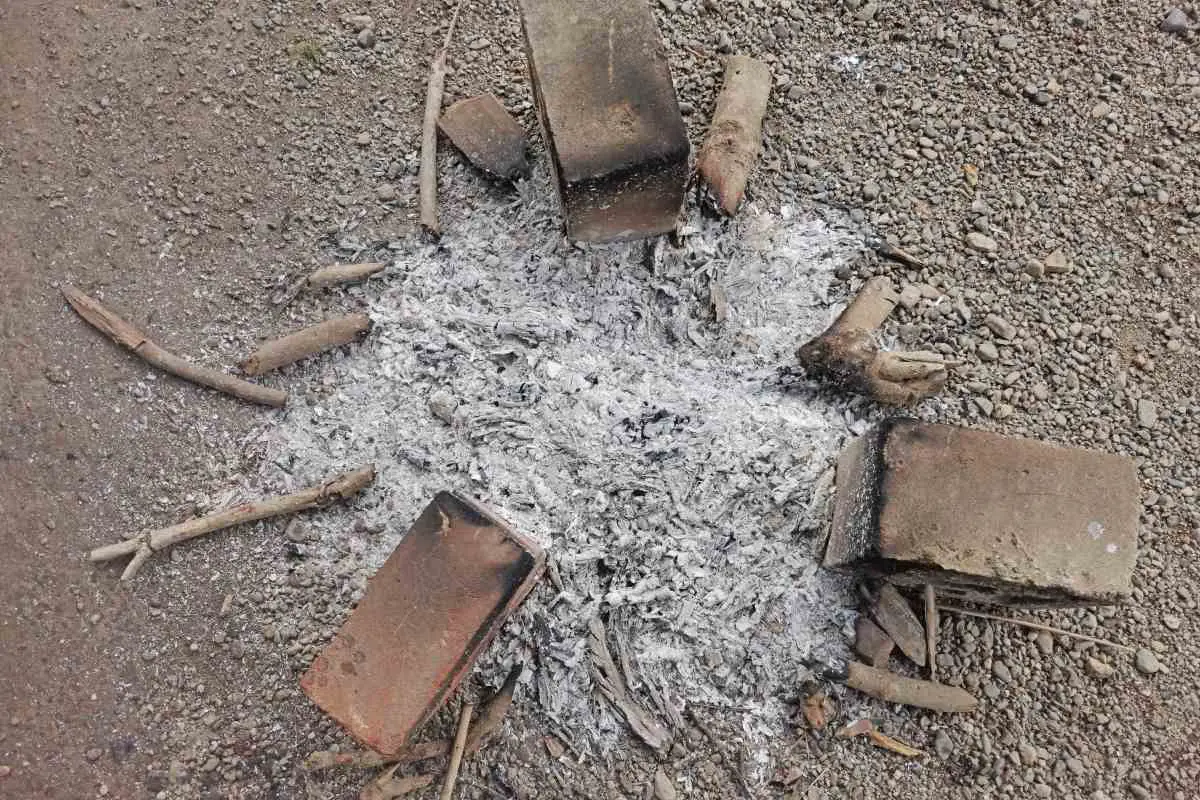If you love gardening, you’d be looking for new ways to improve the health and growth of your plants.
Adding charcoal ashes from your charcoal grill or fire pit to your garden might not be something that you have even considered before, but you can do it.
Charcoal ash isn’t only safe for your plants but it also brings many benefits and can improve your plant’s health in multiple ways.
Today – We’ll discuss how to use this material in your garden and what benefits it offers for your plants.
Is Charcoal Ash Good for Plants?
Yes, charcoal ash is good for plants as it adds nutrients to the soil, attracts beneficial microorganisms, and improves the soil’s pH levels.
It can also help you get rid of different types of pests from your garden that can damage your plants.
Before collecting the ash, make sure that you extinguish the used charcoal thoroughly by closing the lid and vents of your charcoal grill.
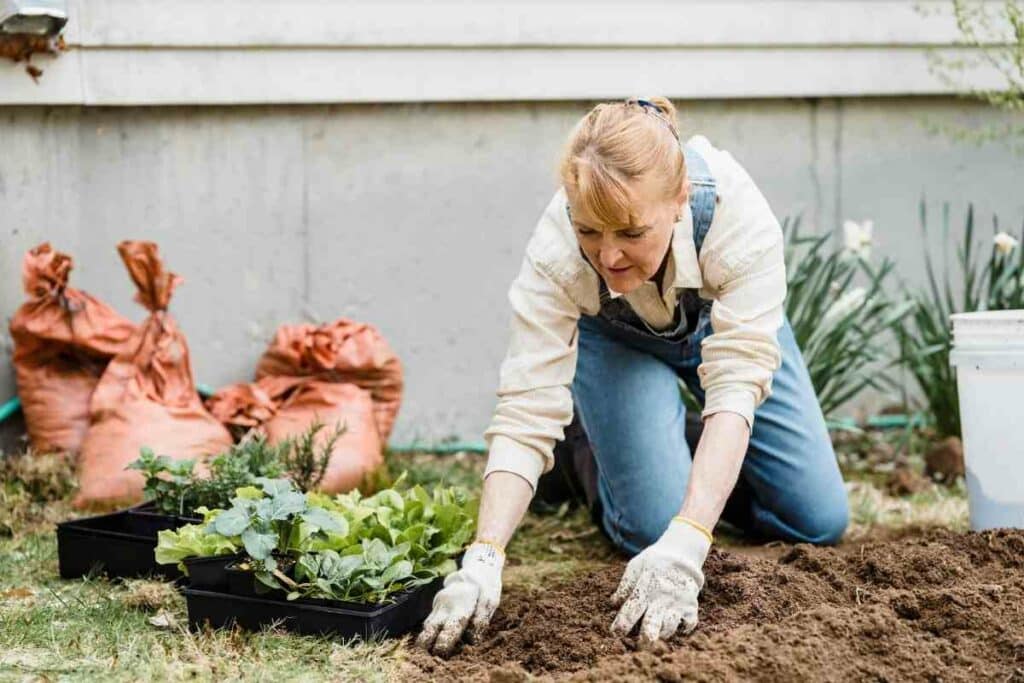
It’ll allow the ash to cool off completely to prevent unwanted accidents.
Keep in mind that the ideal pH level for your garden soil is six to seven. You’ll need to get it checked by taking a sample to a local nursery before adding ash to it.
That’s because the ash will increase the pH level of the soil. If it’s already seven or higher, you’ll need to avoid using charcoal ash or the soil will become more alkaline than it’s supposed to.
How to Use Charcoal Ash for Plants Correctly?
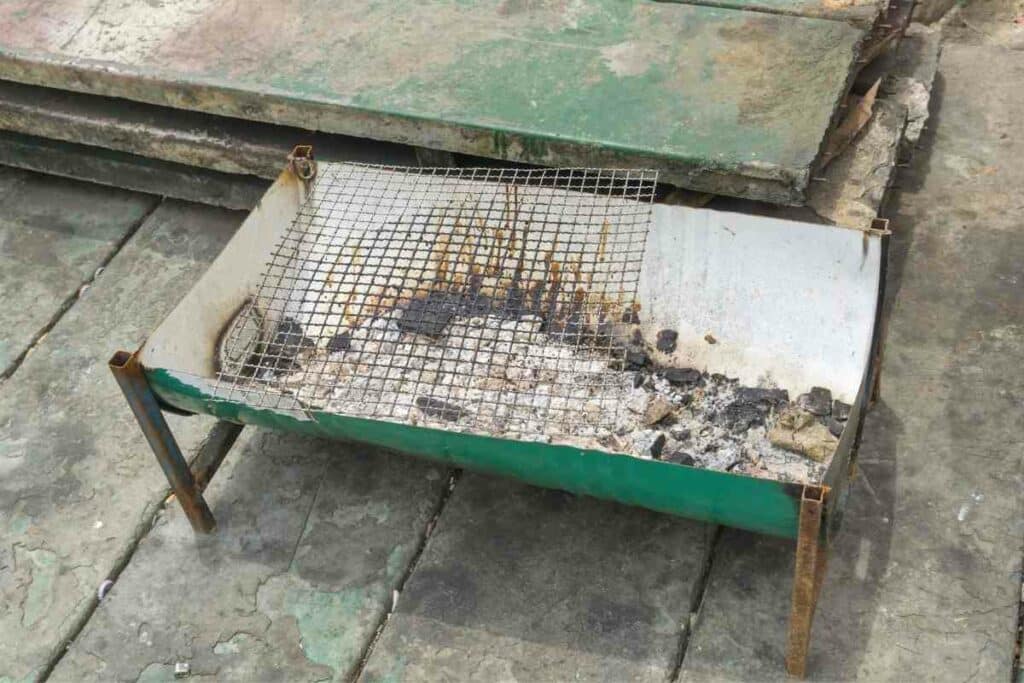
The following are some of the most effective ways you can use charcoal ash in your garden.
Use to Control Pests
If you have a pest problem in your garden, you can use charcoal ash to solve it.
Just sprinkle some ash around your plants to keep the pests at bay. You can also use a pest-killing spray using charcoal ash if you want.
Mix one ounce of hydrated lime, one ounce of charcoal ash, and one gallon of water together and add the solution to a spray bottle.
Then, spray it on the perimeter of the garden and around plants to deter harmful insects.
Always Good Idea – If you have outdoor bird cages and chicken coops in your backyard, consider using wood charcoal ash around them. It’ll deter mites and lice that bother chickens and other small birds.
Add to Compost Pile
The biggest element present in charcoal ash is carbon, making it a great addition to a compost pile.
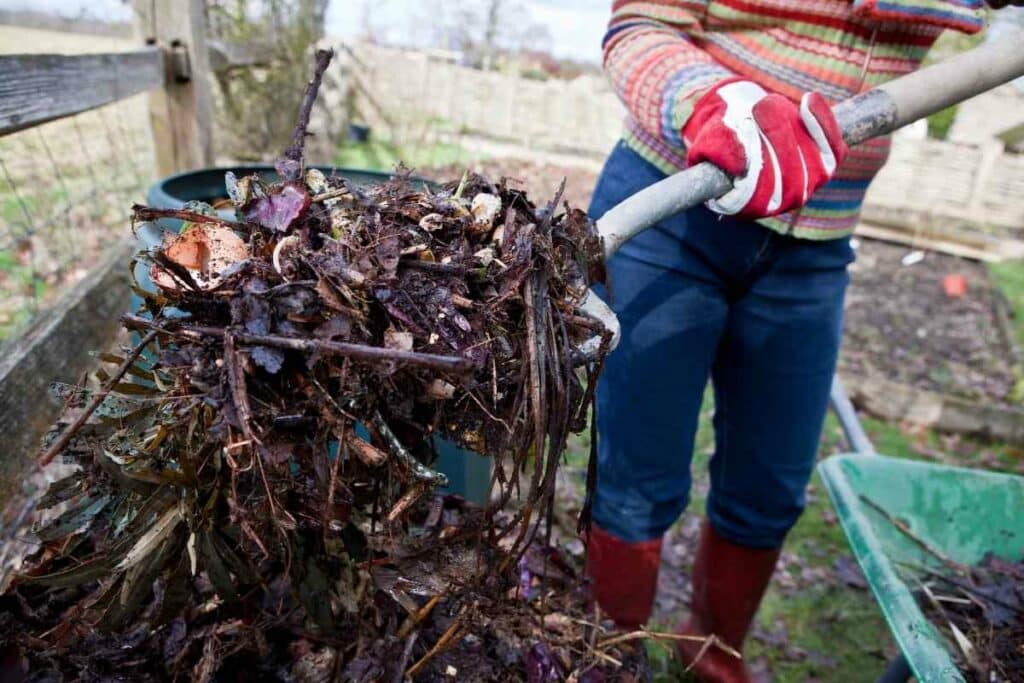
Your compost pile will have a lot of tiny insects, fungi, and bacteria that will break down carbon present in ash to turn it into nutrient-rich humus.
The wood ash will also feed the beneficial organisms in your compost pile to accelerate the decomposition process.
You can even throw some unused charcoal in your compost heap for the same purpose.
Improve Garden Soil’s Acidity
Charcoal ash has an alkaline nature because it contains trace amounts of lime and potassium.
It means, it can work as an all-natural amendment and you can use it to deal with acidic garden soil.
Adding it to the soil will increase its pH level gradually over time to remove acidity.
It’s important to note that the potassium present in ash alters chemical reactions by going deep within the soil to decrease the acidity.
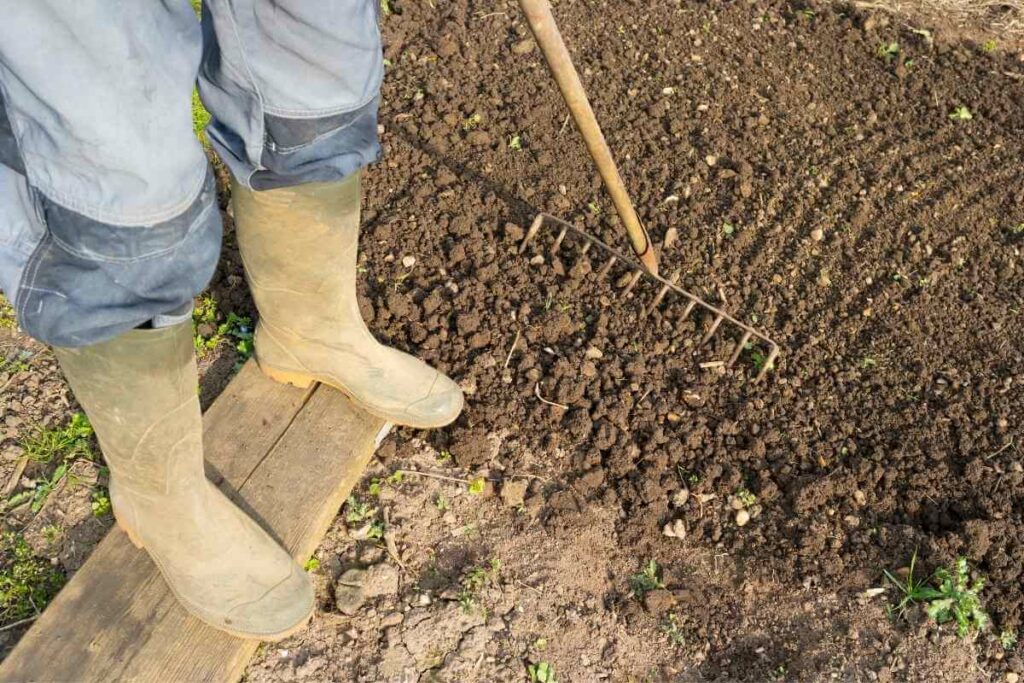
It allows plant and tree roots to take advantage of the change optimally.
Lime present in charcoal ash changes the chemical makeup of the soil to change its pH level. It contains magnesium and calcium, which make the soil more alkaline.
We recommend you use this method only when your garden soil has become acidic.
Additionally – You’ll need to avoid using charcoal ash even for acidic soils if you’re raising plants such as gardenia, rhododendron, azaleas, and blueberries.
That’s because these plants thrive on acidic soils and can get damaged due to highly alkaline ash.
Use as a Fertilizer
The nutrients that charcoal ash contains can enhance the growth and health of your plant, so you can use it directly as a fertilizer.
You’ll need to add it to the soil just like a traditional fertilizer and work it in.
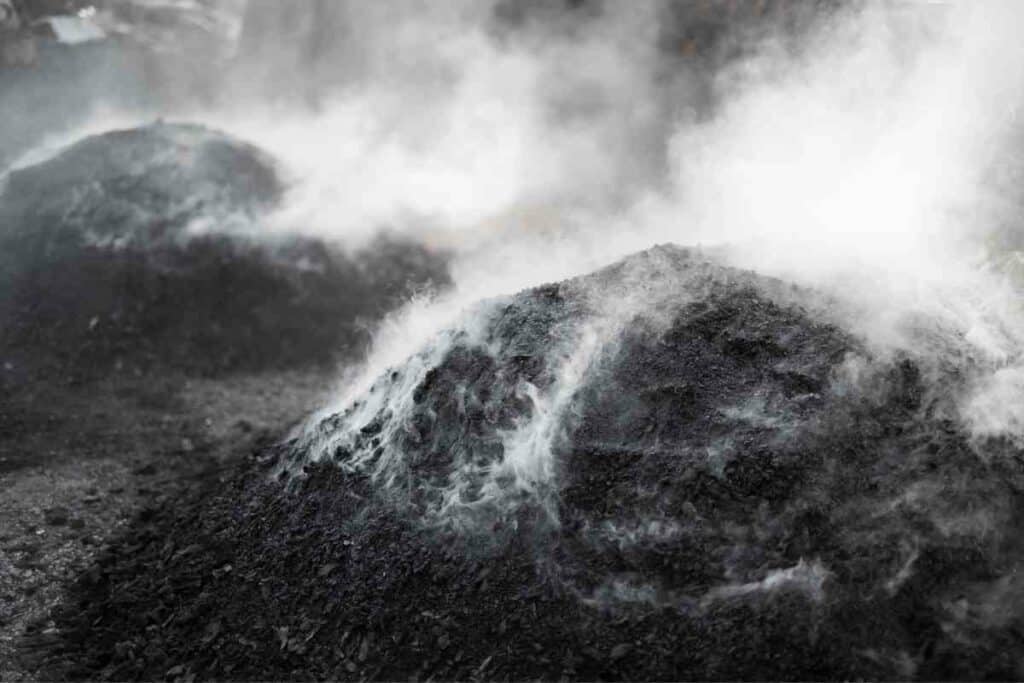
Make sure that you keep your wood char ash additive-free and use it in moderation.
Adding more briquette charcoal ash than required will change the way your plants consume nitrogen.
Additionally, it can also make your plants nitrogen-deficient over time and turn their foliage yellow and stunt their growth.
Ideally – Two pounds of charcoal ash is more than enough for a garden with a 100 square feet area.
Protect Plants Against Cold
One of the most annoying things that can happen in your garden during winters is plants getting damaged by frost.
A sudden cold snap can catch you off guard and ruin your beautiful garden. You can use charcoal ash to combat this problem.
Charcoal ash contains mineral salts and they can lower the freezing point of water, present in the garden soil.
You can spread some lump charcoal ash around your plants and dust some of it on their leaves to prevent frost damage.
Heads Up! It’s important to note that charcoal ash won’t be able to protect your plants in extremely cold weather. However, it’ll add some protection against frost, especially when the temperature is around the sub-below level.
Does Content of Charcoal Briquettes Matter?
Yes, the content of your charcoal briquettes matters.
You need to make sure that you use ash from charcoal briquettes made entirely from wood. Otherwise, you’ll end up damaging your garden soil and plants.
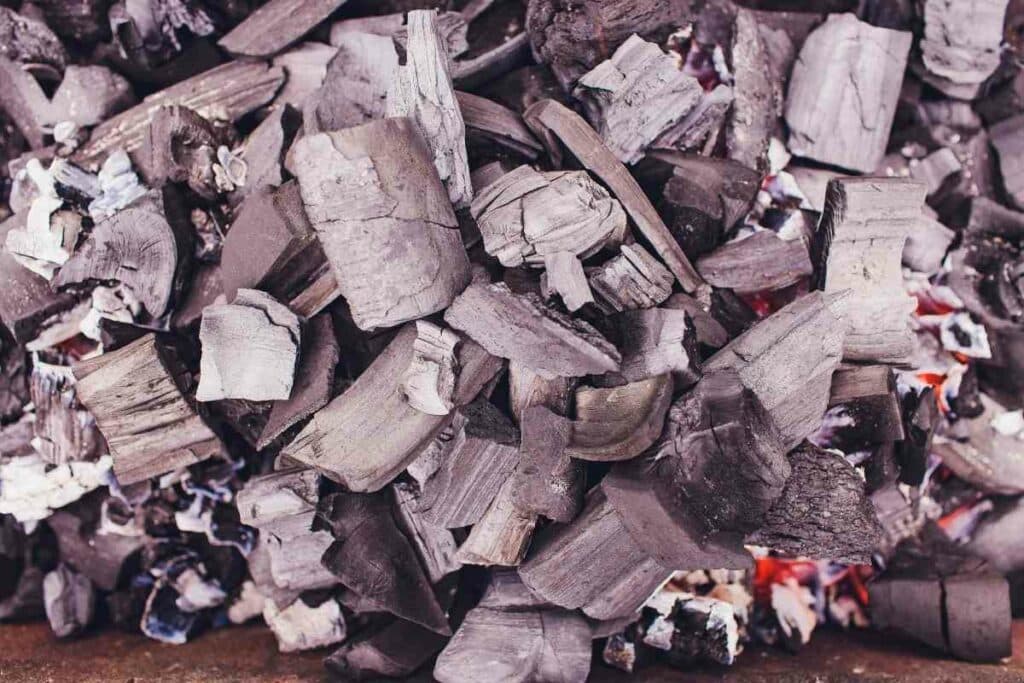
You’ll need to dispose of the charcoal ash that you obtained from charcoal briquettes made using additives.
Make sure that you wrap the used charcoal briquettes in aluminum foil and throw the package in the garbage.
Final Words
Charcoal ash is good for your plants and can benefit them in multiple ways.
Make sure that you get the pH level of your garden soil checked from a local nursery and use charcoal ash if the soil is acidic.
Additionally, don’t use ash for your plants obtained from charcoal briquettes made using additives to protect your plants’ health.
